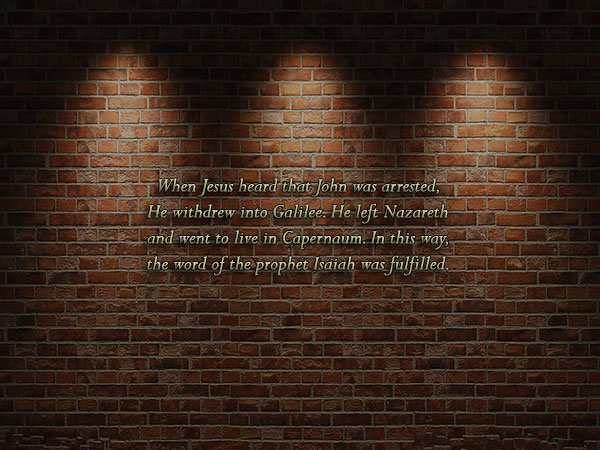Mk 7:1–13
One day the Pharisees gathered around Jesus, and with them were some teachers of the Law who had just come from Jerusalem.
They noticed that some of his disciples were eating their meal with unclean hands, that is, without washing them. Now the Pharisees, and in fact all the Jews, never eat without washing their hands, for they follow the tradition received from their ancestors. Nor do they eat anything, when they come from the market, without first washing themselves. And there are many other traditions they observe; for example, the ritual washing of cups, pots and plates.
So the Pharisees and the teachers of the Law asked him,
“Why do your disciples not follow the tradition of the elders, but eat with unclean hands?”
Jesus answered,
You shallow people! How well Isaiah prophesied of you when he wrote: This people honors me with their lips, but their heart is far from me. The worship they offer me is worthless, for what they teach are only human rules. You even put aside the commandment of God to hold fast to human tradition.
And Jesus commented,
You have a fine way of disregarding the commandments of God in order to enforce your own traditions! For example, Moses said: Do your duty to your father and your mother, and: Whoever curses his father or his mother is to be put to death. But according to you, someone could say to his father or mother, ‘I already declared Corban (which means “offered to God”) what you could have expected from me.’ In this case, you no longer require him to do anything for his father or mother, and so you nullify the word of God through the tradition you have handed on. And you do many other things like that.
REFLECTION
Traditions are not only important for many religions, they are also very much part of any culture. Even families have traditions they consider sacrosanct. The word “tradition” means “something handed down,” from one generation to the next. It could be a teaching or a practice. Precisely because traditions are handed down, the way they are interpreted can change over time as cultures and people’s contexts change. Sometimes people observe traditions without even understanding their significance. Meanings can get lost in transmission, not just in translation. In itself, tradition is not bad. If so, what is Jesus really criticizing in today’s gospel? I don’t think it is tradition as such, since it appears that Jesus himself was not against all tradition. We are told that he observed some traditions like going regularly to the synagogue “as was his custom.” What Jesus was against is when a human-made tradition is being taught as an absolute, when it is done to earn salvation, or when it is given priority over God’s commandment of love. Tradition of this kind can only lead to an empty, hypocritical and superficial worship of God. Jesus invites us to worship God from our depths.
CLARETIAN COMMUNICATIONS FOUNDATION, INC.
8 Mayumi Street, U.P. Village, Diliman, 1101 Quezon City, Philippines
Tel.: (02) 921-3984 • Fax: (02) 921-6205, 927-7429
Bookstore: (02) 924-6835
Email: ccfi@claretianpublications.com / cci@claret.org
Website: www.claretianpublications.com





